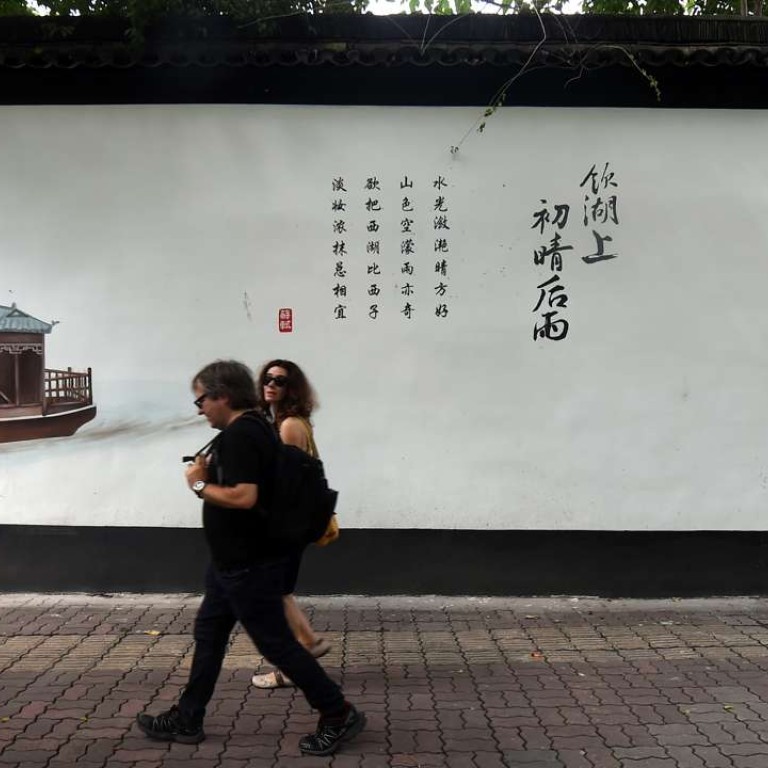
In an era of people power, what can a gathering such as G20 do?
Mark Logan says our focus on singular leaders who can change the world is passé, as, increasingly, it is the middle class everywhere that’s shaking up our lives
I recall a senior official of an average-sized Chinese city disparagingly noting that mayors in the UK wield little power, and even less of a budget. Despite this, angry netizens increasingly demand more from elected representatives. All this in an “end of power” epoch, when, as commentator Moises Naim claims, “being in charge isn’t what it used to be”.
History has tended to focus on leaders. Arguably, leadership is now less about the movers and shakers at the top. Increasingly, it is the middle class.
Betrayal of masses sure to spell failure for those in power
Irrespective of the reality that one person – whether it be Barack Obama, Vladimir Putin or Xi Jinping ( 習 近平 ) – cannot alone extinguish terrorism, end climate change or enhance global trade, many still largely focus on these figures, either in the hope that they’ll wave their magic wand or as a convenient punchbag for the jabs of public dissatisfaction.

Rachman also mentions the success of the G20 in 2008/09 when then British prime minister Gordon Brown led the elite club to “save the world” from the financial crisis. Does this mean next month’s G20 in the Eastern capital city of Hangzhou ( 杭州 ) is best placed to solve all the world’s ills?
Danny Quah, formerly of the London School of Economics, has beaten the drum for the notion that the “centre of gravity is moving to the East” longer and louder than most. The implication is that as economic clout shifts eastwards, political decision-making will gradually follow.
One problem may be that nations are motivated not by high ideals of multilateral collaboration, but selfish national interests. Talk is cheap but events propel people, governments and nations into action.
Does Easternisation hasten the end of power in the traditional centres of decision-making?
Does Easternisation hasten the end of power in the traditional centres of decision-making? To respond, we must throw questions at Rachman and Quah: does geography matter as much as it used to? Or do values matter more? What type of world do people want to live in?
Arguably, Easternisation is simply Westernisation repackaged. Capitalism, materialism, foreign travel and education, the internet and infrastructure links are arguably making an increasing number of people resemble one another. Where international socialism failed, the international middle class has prevailed. We shouldn’t interpret this as people of the East becoming more like those in the West. Rather, there is a baseline unity alongside notable but increasingly cosmetic differences.
We may well see an increasing fusion in our global identity. Quah’s centre of gravity will continue to move East, but people’s aspirations on either side of the centre will always be the same, namely peace and prosperity.

To become a global leader, China must first be ready to do some heavy lifting
There is an ending (or at least a sharp decline) in the ability of government to make significant change. This is true for both democracies and more authoritarian states. The end of power in the top-down sense can now make way for the beginning of power in a bottom-up sense; that is, from the middle classes. As scrutiny and accountability expand, the latitude of the traditionally powerful will shrink.
Around the world, institutions are viewed as serving the status quo. We’ve already seen in a short period stasis in Washington, Brexit, rumblings at the World Bank, corruption in Fifa and despondency with the International Olympic Committee.
Those sitting around the table at Hangzhou may be seeing the beginning of power, not the end of it, but may not realise what it means. It will increasingly be power of the people.
Mark Logan was head of communications and spokesman at the British consulate general in Shanghai from 2012-16 and a global communications adviser to Chinese organisations

